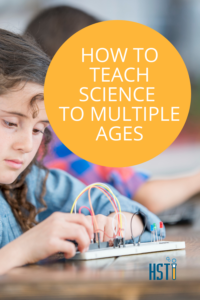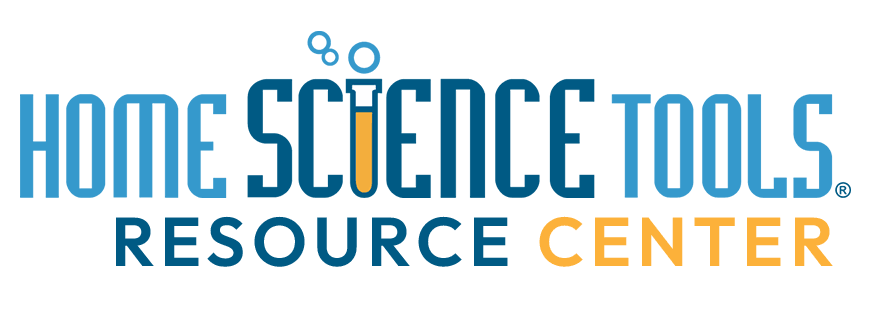Science is a fun and creative subject for everyone, and it seamlessly taps into various learning styles. Therefore, it’s adaptable and easy to make enjoyable for all learning types. One of the more challenging tasks for homeschool educators is teaching science to multiple age groups. But with the right strategies, teaching science to multiple ages doesn’t have to be complicated.
How to Teach Science to Multiple Ages in Your Homeschool
If you homeschool more than one child, you’ll know firsthand that teaching multiple ages at once can be wildly intimidating. Thankfully, science is one of those subjects that is incredibly forgiving in this area.
Let’s examine three ways that will help you teach science to multiple ages.
1. Science Experiments: One For The Whole Crew
Homeschoolers love getting hands-on with science. Sometimes parents make the mistake of creating textbook-heavy science learning, and kids tend to lose interest in those settings—so adding hands-on learning fun is super important!
Experiments are the best way to let kids get hands-on in science learning.
To make one experience work for multiple grade levels, choose something that is easily adaptable and has components in it that would be of interest to both younger and older students. Science Unlocked, for example, offers three levels to choose from. Select the one that fits your children’s age ranges best.
If you are looking for a single experiment to engage multiple ages, here are a few options:
- Veggie Power Battery Kit
- Chemistry of Ice Cream Making Kit
- Snap Circuits Snaptricity Kit (younger and older kids really enjoy this one!)
2. Think Outside The Book
Teaching science doesn’t have to come only from structured science lesson plans and a traditional textbook.
Explore other realms of learning about the field of science, like reading books about famous scientists or combining science with another subject like history or language arts.
Combining science with other subjects creates a layer of unexpected learning that help engage and grab the attention of students.
Visit your local bookstore and see what books they offer about scientists and popular science topics like earth science, biology, and robotics.
Most bookstores offer books on similar topics in numerous age categories. For example, you could get age-appropriate books about robotics or space science for your middle and high schoolers.
Here are a few of our favorite recommendations that combine science, history, and experiments — making it so much fun!
- Elementary Science in the Industrial Age
- Berean Builder Science in the Ancient World
- Berean Builder Science in the Scientific Revolution
Unit studies are a great way to cater to various age groups on one topic within a subject (or multiple subjects). In super simple terms, a unit study is an in-depth study on a specific topic. For example, you can create a unit study around rocks. You would find books, literature, and videos (check YouTube!) around the topic of rocks. Think further than just the hard thing you kick around at the park. Dive into earth science and learn how rocks form, their densities, how they vary by location, specialty rocks, precious rocks, and so on.
If you’re looking for something to supplement your curriculum or take a closer look at a specific science discipline, Science Foundation Series is another great option.
3. Selecting The Right Curriculum For Multiple Ages
Which curriculum should you choose when teaching multiple ages? You’ll get varying answers to this question.
Some say it’s best to cater to older children—even high school—and then simplify things for younger children.
Others find it best to cater to the younger ones and add more research for the older (think science fair-like activities, analysis, essays, and so on). Others prefer catering to the mid-level and adding or lightening the material based on age.
So, how do you choose? You have to go with what works for your family and your strengths. As parents, we know where those strengths are. Some of us are great at simplifying things for our younger ones, while others are great at helping our older kids dig into research and go super in-depth about something. Work with what you’re good at!
Check out some of these popular science curriculum options. You’ll find that many of them can be adaptable for various ages.
Bonus Tip! It’s Okay To Get It Wrong
Most importantly, know that it’s okay to make mistakes along the way. It’s how we learn and it’s also a great teaching/learning/modeling experience for our kids! So don’t stress if you don’t get the right combination of homeschool curriculum and resources the first time to help you with teaching science to multiple ages. Just set it aside, assess what went wrong, and make changes to fit the needs you’re finding!
We offer over 3,000 science education products for students of all ages. Whatever your homeschool science needs, we’re here to help you find the right fit for your family.






